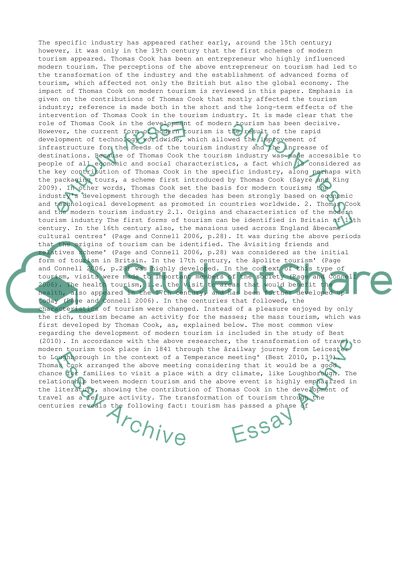Cite this document
(“Thomas Cook and the modern tourism industry. The Evolution of Essay”, n.d.)
Retrieved from https://studentshare.org/management/1393748-thomas-cook-and-the-modern-tourism-industry-the-evolution-of-international-tourism
Retrieved from https://studentshare.org/management/1393748-thomas-cook-and-the-modern-tourism-industry-the-evolution-of-international-tourism
(Thomas Cook and the Modern Tourism Industry. The Evolution of Essay)
https://studentshare.org/management/1393748-thomas-cook-and-the-modern-tourism-industry-the-evolution-of-international-tourism.
https://studentshare.org/management/1393748-thomas-cook-and-the-modern-tourism-industry-the-evolution-of-international-tourism.
“Thomas Cook and the Modern Tourism Industry. The Evolution of Essay”, n.d. https://studentshare.org/management/1393748-thomas-cook-and-the-modern-tourism-industry-the-evolution-of-international-tourism.


